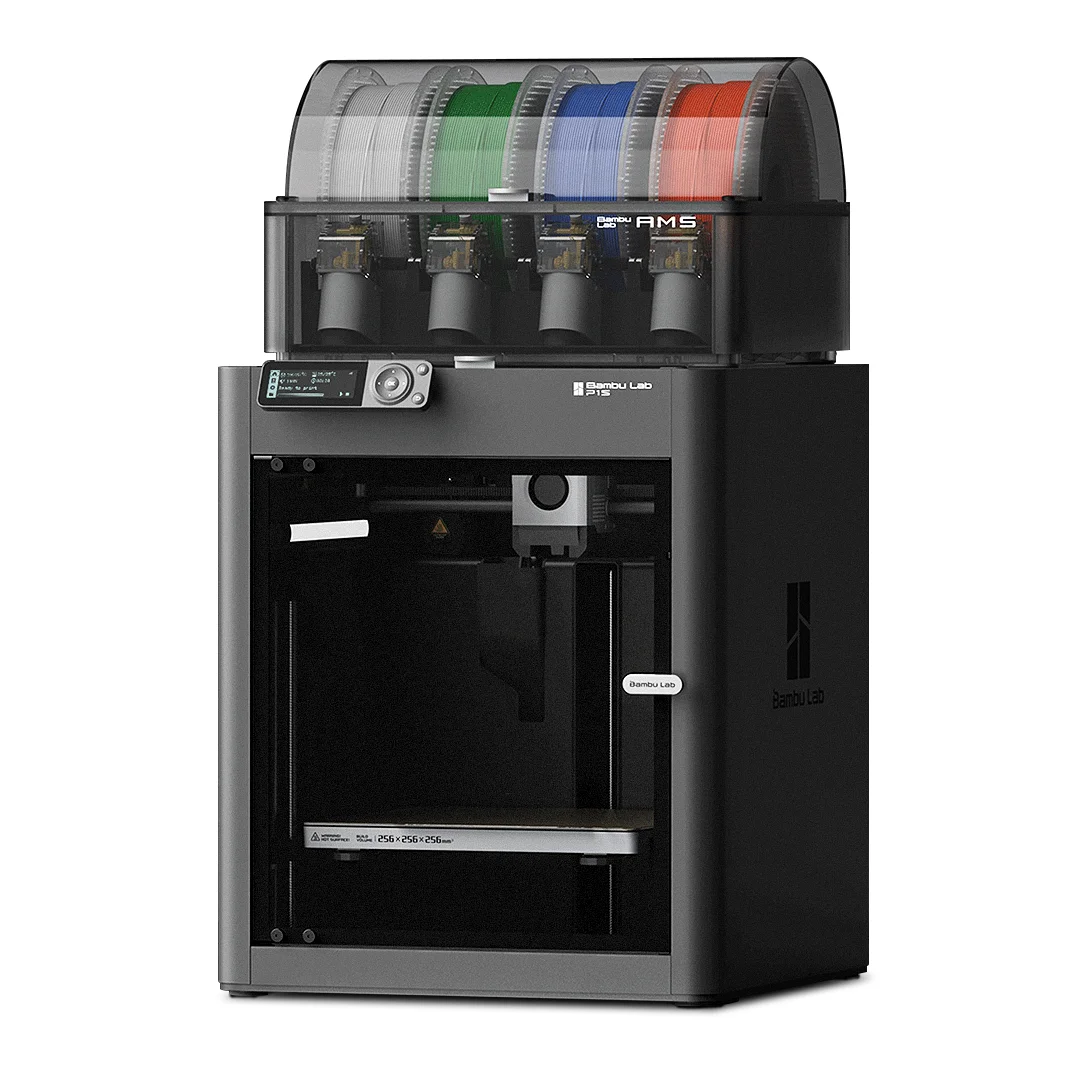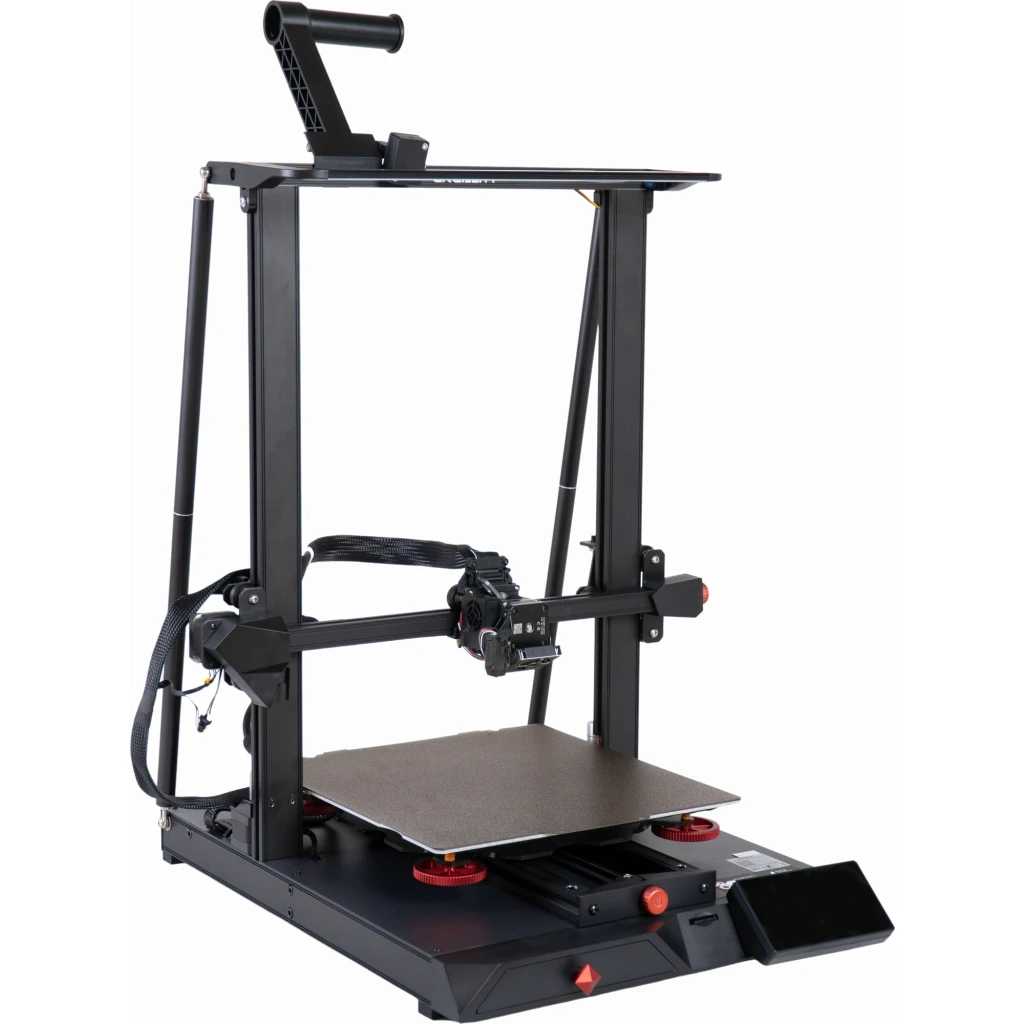Compare P1S vs CR 10 Smart Pro
Comparison between the best 3D printers
Choose the best 3D printer at the best price. The cheapest 3D printers are here.
Buy a 3D printer here with 3D Fila.
 |
 |
|
| Model | P1S[BUY P1S] |
CR 10 Smart Pro[BUY CR 10 Smart Pro] |
| Printing Material | Filament | Filament |
| Buy Filament for Bambu Lab P1S | Buy Filament forCreality 3D CR 10 Smart Pro | |
| Estimated price | $949,00 | $900,00 |
| Manufacturer | Bambu Lab | Creality 3D |
| Release Year | 2023 | 2020 |
| Print Volume [mm] | 256x256x256 | 300x300x400 |
| Printer Size [mm] | 389x389x458 | 578x522x648 |
| Weight [kg] | 12,95 | 13,6 |
| Power Loss Recovery | YES | YES |
| Enclosed printer | YES | NO |
| Bed Leveling | Automatic | Manual |
| Filament End Sensor | YES | YES |
| Bed type | Heated | Heated |
| Power supply system | Direct Drive | Bowden |
| Standard nozzle | 0,4 | 0,4 |
| Maximum Nozzle Temperature [°C] | 300 | 300 |
| Maximum Bed Temperature [°C] | 100 | 100 |
| Maximum printing speed [mm/s] | 500 | 50 |
| Filament holder | YES | YES |
| Camera for supervision | YES | YES |
| Recommended filaments | PLA, PETG, TPU, PVA, PA, PA-CF, Nylon, PC | PLA, PETG, Tritan, Flex, ABS |
| Recommended slicers | Bambu Studio, Super Slicer, Cura, Prusa Slicer, Orca | Cura, Simplify, Slic3r, IdeaMaker |
| Maximum Resolution [mm] | 0,1 | 0,1 |
| Processor | Quad ARM A7 1.2 GHz | |
| Display | Touchscreen 5'' | Display touchscreen 4,3'' |
| Power Supply | 350 W | 110/220V / 350W |
| Connectivity | Wifi, Bambu bus, Cartão SD | SD / USB / Wi-Fi / Ethernet |
| Operating systems | Windows, Linux, Macbook | Windows, Mac, Linux |
| Date of registration in the system | 2024-04-11 | 2022-11-04 |
| Release date | 2023 | 2020 |
| Extra features | The Bambu Lab P1S stands out for its out-of-the-box practicality, eliminating the need for manual adjustments with automatic calibrations such as bed leveling and vibration compensation. It features multicolor printing capability through the AMS system, allowing up to 16 colors when connecting four AMS units. With an advanced control algorithm, the P1S offers fast printing speeds without sacrificing quality. Equipped with modern features such as filament end sensor, semi-automatic belt tension, direct extruder, welded frame and all-metal hotend, along with a fully enclosed chamber, the P1S promotes a superior printing experience, supporting a wide range of materials. | Creality's CR-10 Smart Pro printer offers a large 300x300x400mm build volume, Sprite Pro direct extruder for multiple materials, CR Touch auto-leveling, PEI magnetic bed, 4.3" touchscreen, LED lighting, and Creality Cloud connectivity. Some areas of improvement include the use of brass spindle nuts and tinned wires. |
| Support for multiple colors and materials (AMS and CFS) | YES | NO |
Notes * |
||
| Cost-benefit | 7 / 10 | 6 / 10 |
| Hardware | 6.4 / 10 | 2.5 / 10 |
| Tela | . | . |
| Print volume | 4 / 10 | 4 / 10 |
| Performance | 4 / 10 | 1 / 10 |
| [BUY P1S] | [BUY CR 10 Smart Pro] |
Conclusion |
| In conclusion, the Bambu Lab P1S and Creality 3D CR-10 Smart Pro both offer distinct advantages suitable for different user needs, but they differ significantly in performance and features. The P1S, while slightly more expensive, excels in versatility, speed, and user-friendliness with its automatic leveling, fully enclosed design, and high-speed capabilities. It supports an extensive range of materials and has advanced features like multi-color printing, positioning it as a premium choice for those seeking out-of-the-box efficiency and a quality printing experience. On the other hand, the CR-10 Smart Pro, although more budget-friendly, offers a larger print volume and retains fundamental features such as a heated bed and touchscreen interface. However, it falls short in user experience with manual bed leveling and some concerns regarding material handling and component quality. For users prioritizing cutting-edge technology and ease of use, the Bambu Lab P1S stands out as the superior option. In contrast, those requiring a larger build area at a lower cost and who are comfortable with manual adjustments may find the Creality 3D CR-10 Smart Pro to be a satisfactory choice. Ultimately, it comes down to individual requirements and budget considerations when selecting between these two models. |

